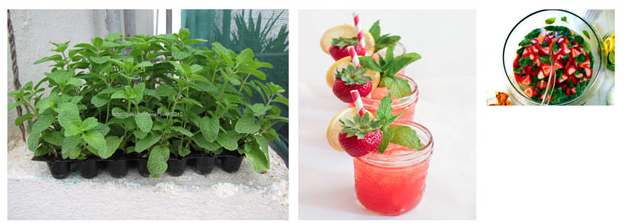
Fruits and vegetables are often times discussed as a power-house of nutrients. Many times, fresh herbs are usually forgotten on this list. Mint takes precedence among all the herbs, however they can be just as essential to a healthy diet as fruits and vegetables and can offer a wide array of health benefits. Mint is a tender herb and best to add either raw or near the end of cooking in order to maintain their delicate flavor and texture. Ancient Greeks and Romans use mint leaves to relieve pain and has been used in naturopathy to alleviate indigestion. Mint leaves are also used as a digestive aid. Oil present in the leaf relaxes the muscular lining of the digestive tract, relieving cramps, gas and also alleviating indigestion.
The strong aroma of mint is very effective in clearing up congestion of the nose, throat and lungs, which gives relief from the respiratory disorders that often times result from common cold. As mint cools and soothes the throat and other respiratory channels it relieves the irritation, which causes chronic coughing. This is the main reason that many of the balms are based on the composition of mint as their main component.
Mint oil is also a good antiseptic. Mint juice is an excellent cleanser. It soothes skin and helps to cure infections and also helps to reduce pimples. Even just the smell of mint oil or freshly crushed mint leaves is effective remedy for nausea. It is also a great appetizer or a palate cleanser and it helps to promote digestion. Mint also plays an important role in improving the oral hygiene. Since it has germicidal qualities and quickly freshens the breath, it adds to oral care by inhibiting harmful bacterial growth. Now a days mint is one of the most common elements in tooth- paste and mouthwashes and other dental hygiene products. The easiest way to get good results is to chew on the leaves.

